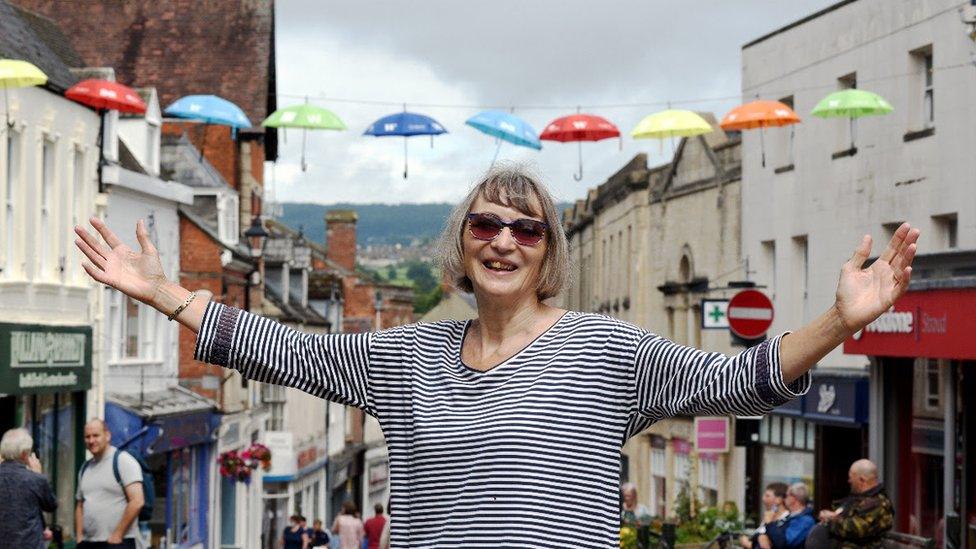'It's celebrated and not something to be afraid of'
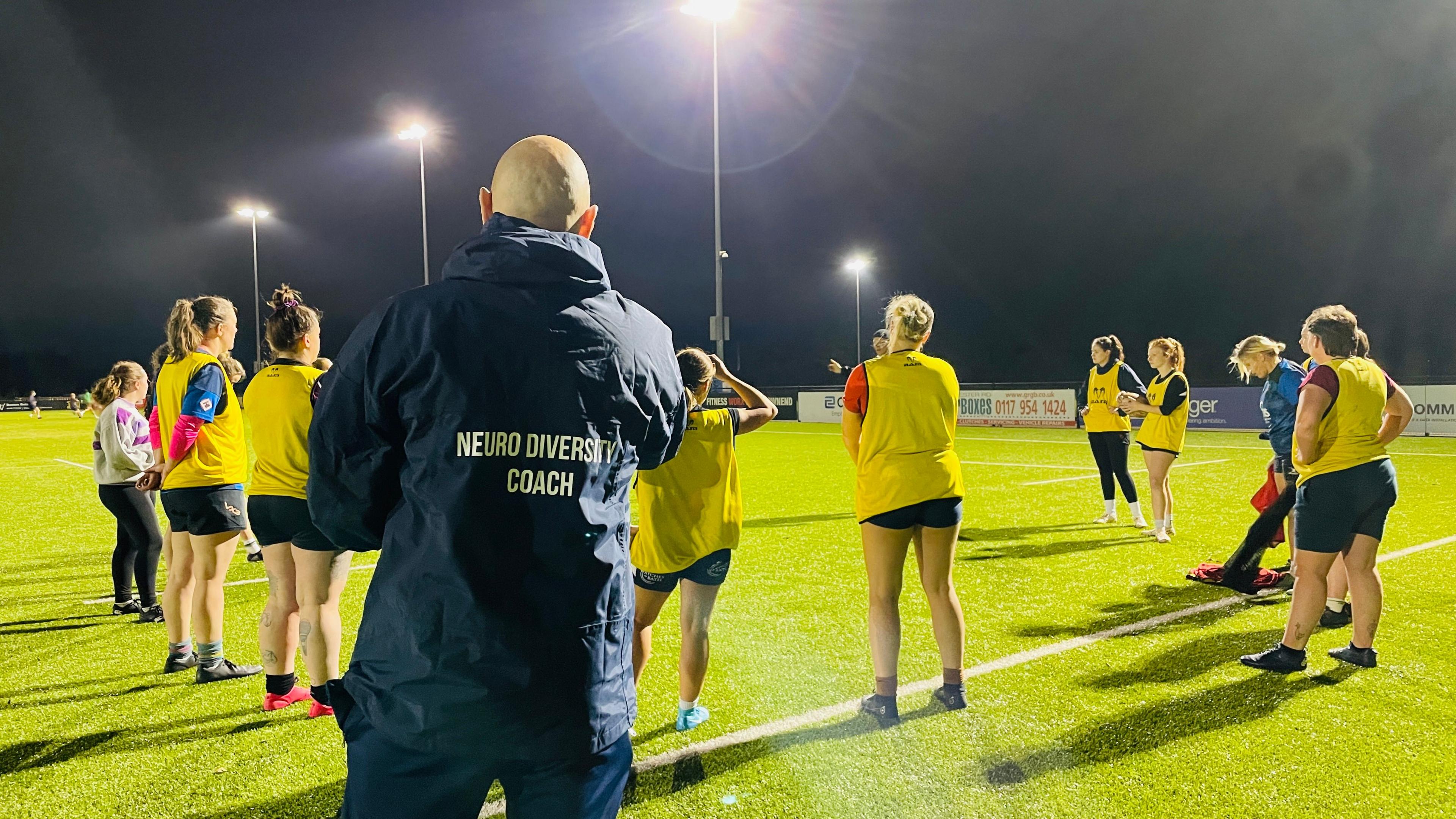
Dings Crusaders RFC have added a neurodiversity coach to the team
- Published
A Bristol rugby club is the first in England to have taken on a neurodiversity coach to improve players' wellbeing.
Research carried out by Dings Crusaders RFC, in Lockleaze, Bristol found that 35% of players at the club either identify as, or have a diagnosis of, neurodivergence.
Jacob Kelly has joined the club's coaching team to support neuro-divergent athletes.
He said often the biggest difficulty facing the players he works with is low self-esteem which, if tackled, can "far outshine what we do on the pitch".
He said: "If we tackle that, that has a long lasting, positive effect on things like mental health outcomes, social confidence and how we move in society.
"If you look at people like Michael Jordan - he has ADHD - and one of the most successful gymnasts, Simone Biles - she has ADHD - so we know if you can manage it well and put those things in place people can do amazing things," he said.
"That’s what we want to do here."
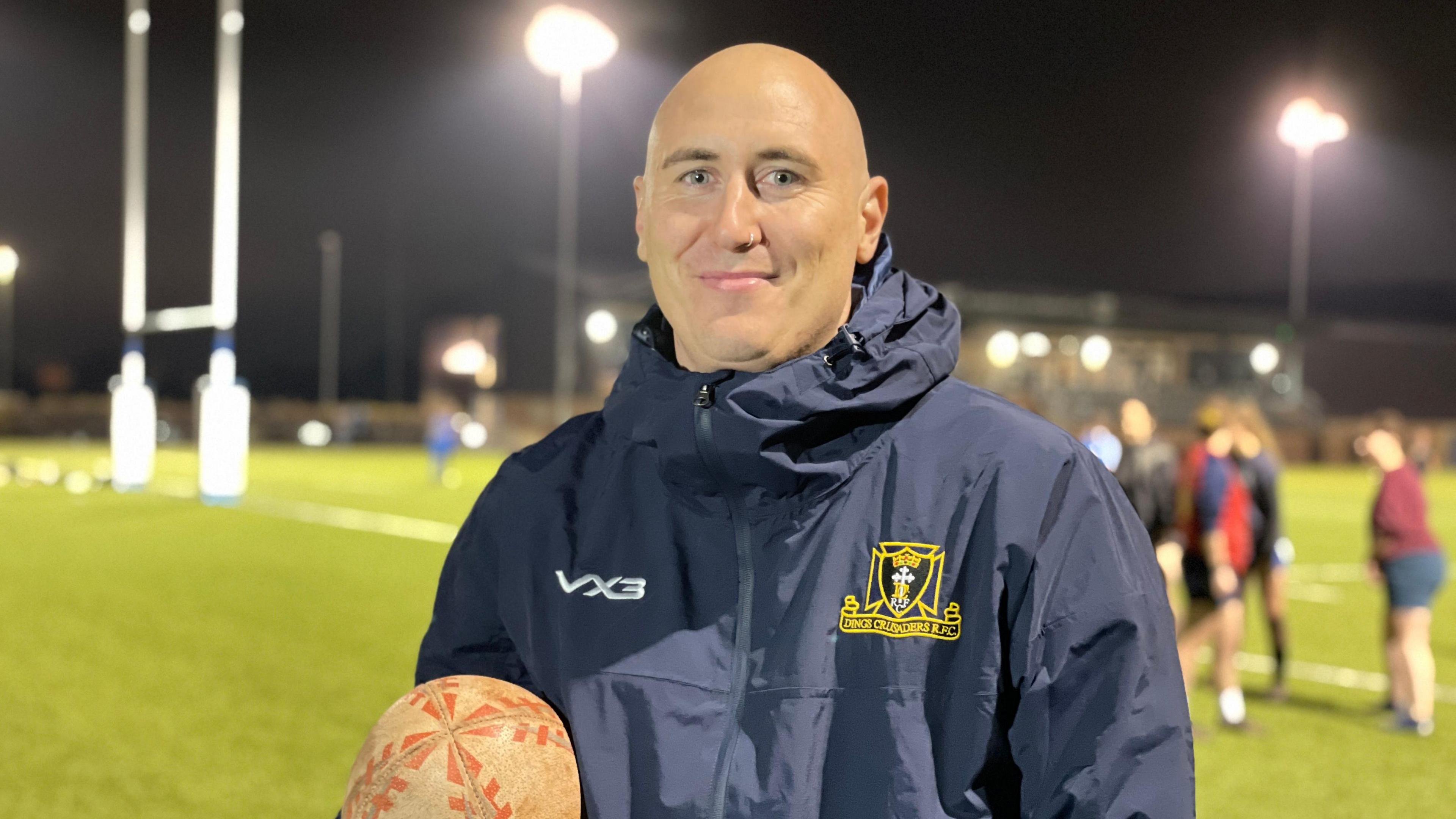
Jacob Kelly is the neurodiversity coach at Dings Crusaders RFC in Bristol
Neurodivergence is the term for when someone's brain processes, learns, or behaves differently from what is considered "typical."
Diagnoses include attention-deficit hyperactivity disorder (ADHD), external, and autism spectrum disorder (ASD), external.
Player Anya Steel, who has been with Dings Crusaders RFC for a month, said that the club made sure her ADHD diagnosis was "a celebrated thing and not something to be afraid of".
She said: "The most important thing is it opens up a conversation for me to say – I’m struggling with this because of my ADHD.
"It’s something that’s taken into account from a neuro-divergent perspective," she added.
“I think a lot of neuro-divergent people find a safe space within sports, so having things in place is super important to those players' games, their lives and just the game as a whole.
"It's making sure that players with slightly different brains are going to have the same opportunities as our neurotypical counterparts.”
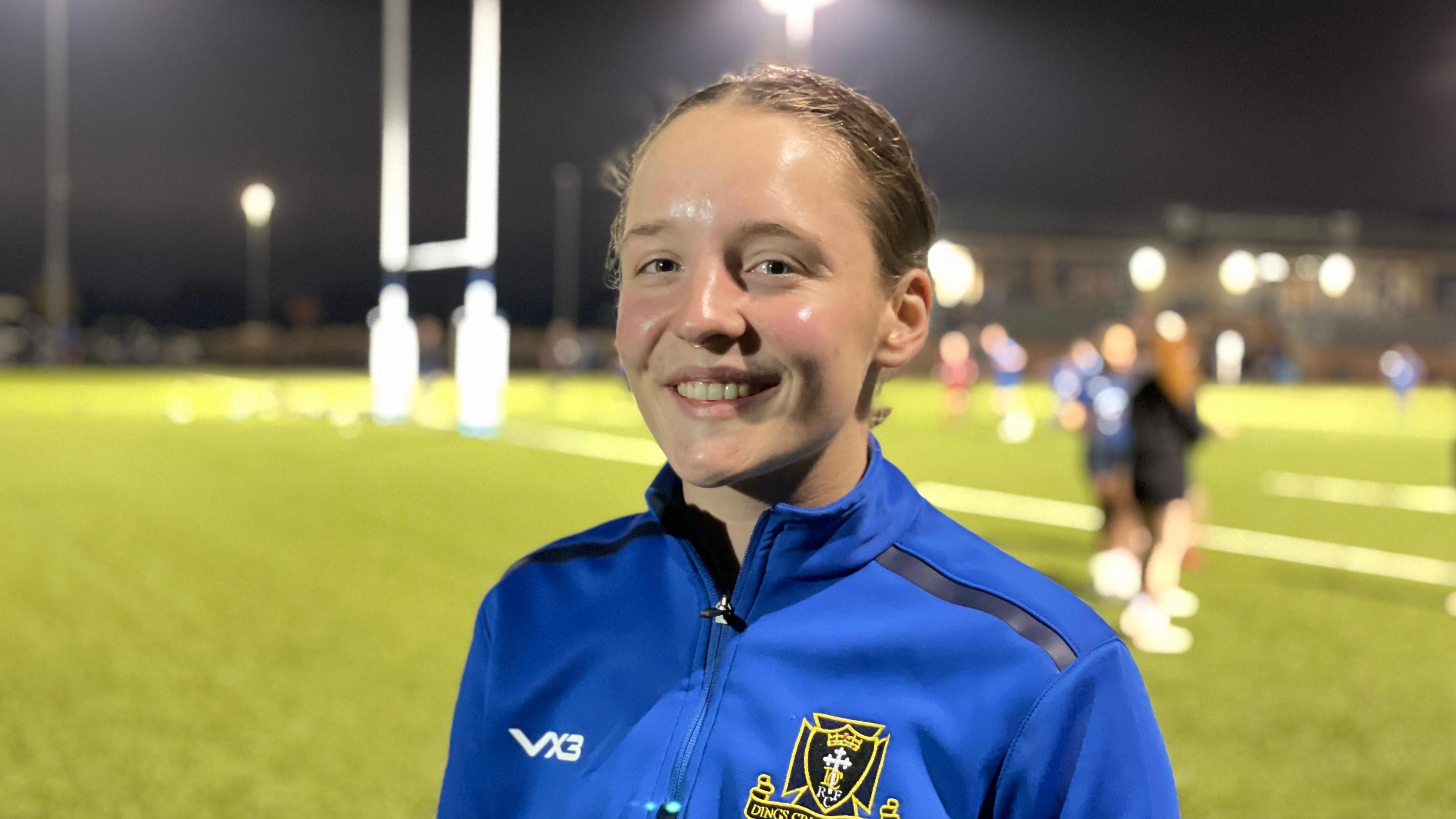
Anya Steel said her ADHD has been "celebrated" at the club
Manager and player Rebecca Bird, who joined the club three seasons ago, said Mr Kelly's role is key to keeping communication open between players and coaches.
She said: "He’s got a really good understanding of how we feel and is able to communicate that back to the club.
“I think historically, a lot of people have been seen as difficult and it’s not that – we’re different and it’s about managing individuals in a group and making sure all learning styles fit.
"That’s what Jacob has been really, really good with and really supportive.
“We’re proud to be a team where everyone fits in”
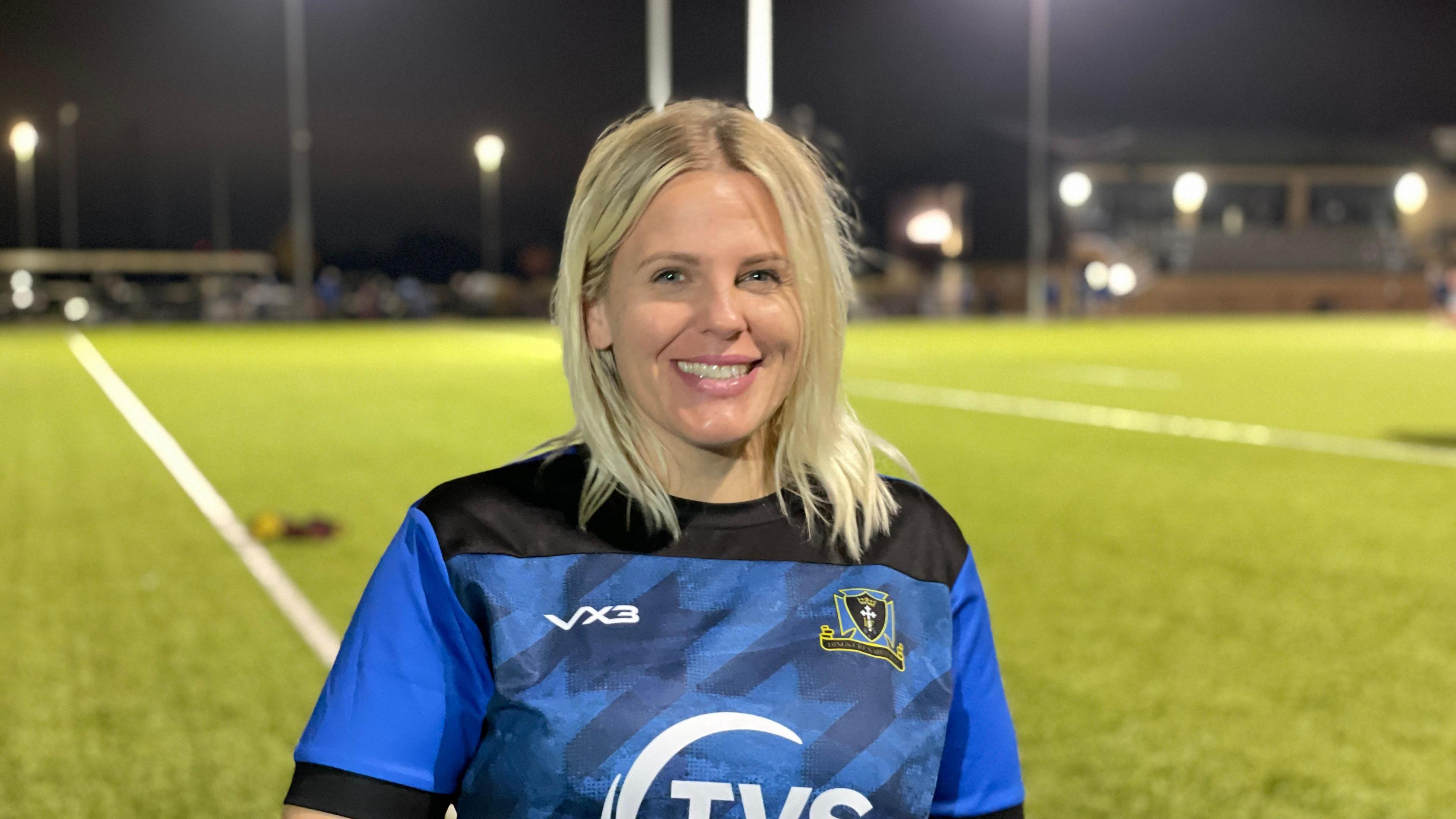
Rebecca Bird said historically people with ADHD have been seen as "difficult"
Sam MacDonald has two daughters, Roxy and Danielle, playing at the club.
Speaking to the BBC, she said club coaches had noticed her daughter Roxy was displaying neuro-divergent traits and offered to start working with her.
"It really does help that they understand her," Ms MacDonald said.
"They can see when things are changing and things are getting difficult.
"Jacob works with the coaches quite closely on recognising those triggers as well and how that can be managed."
Ms MacDonald said it is because of this support that Roxy has started on the England Rugby Development Pathways and it now playing for the England PDG under-18s.
"It’s meant that her rugby has progressed, which is her passion," she added.
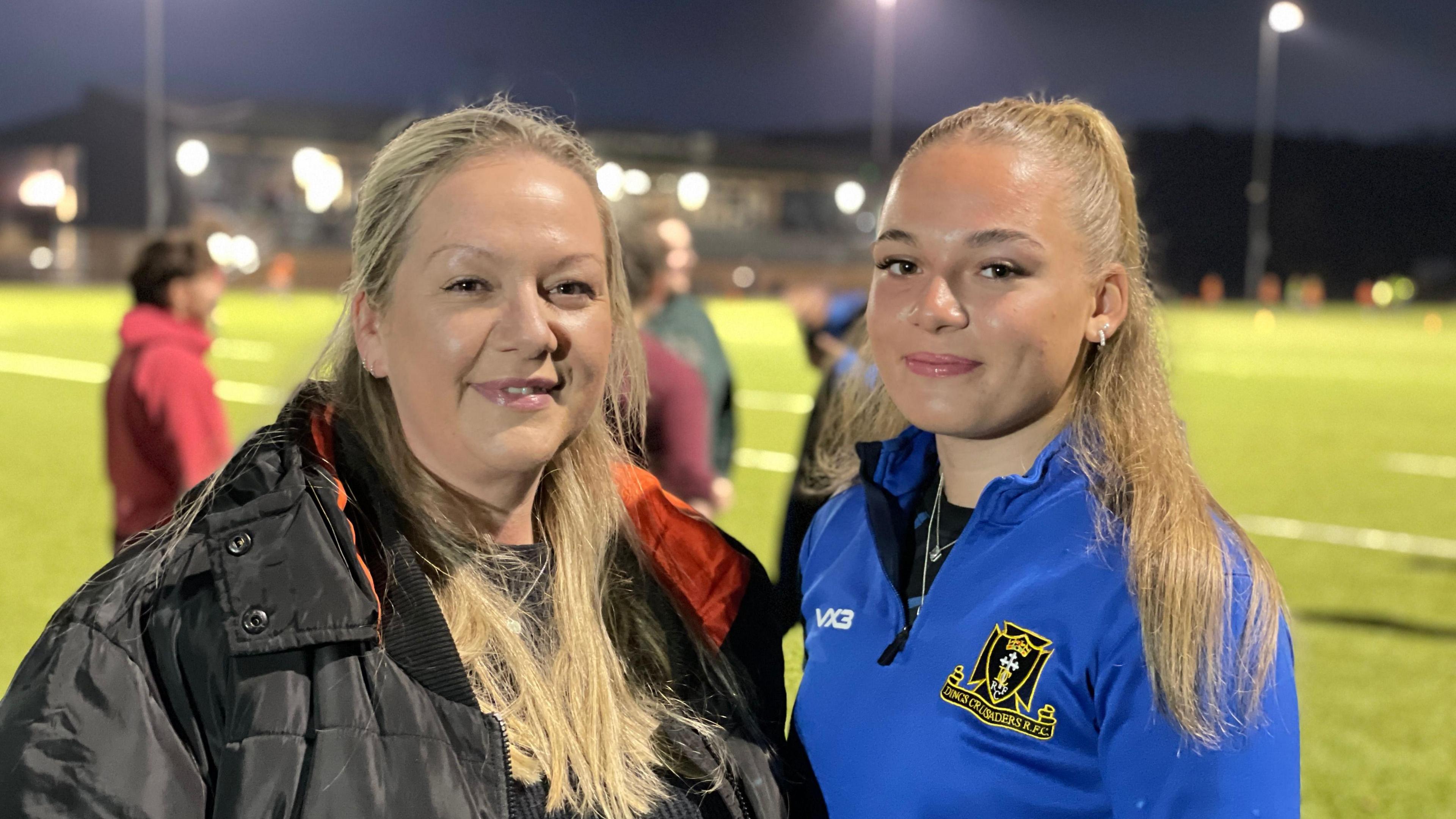
Mother Sam MacDonald (L) said the club have supported Roxy (R) in following her passion
A Rugby Football Union (RFU) spokesperson said: “Providing an environment that is inclusive and tailored for its neuro-diverse players is key to ensuring they enjoy their time on the pitch and learn in a way that is right for them.
“By bringing in a neurodiversity coach, Dings Crusaders RFC is clearly looking to provide a learning environment that recognises the different and unique ways in which people learn.
"It’s great to see clubs putting provision in place to support the players who will benefit from it.”
Follow BBC Bristol on Facebook, external, X, external and Instagram, external. Send your story ideas to us on email or via WhatsApp on 0800 313 4630.
Related topics
- Published24 October 2024
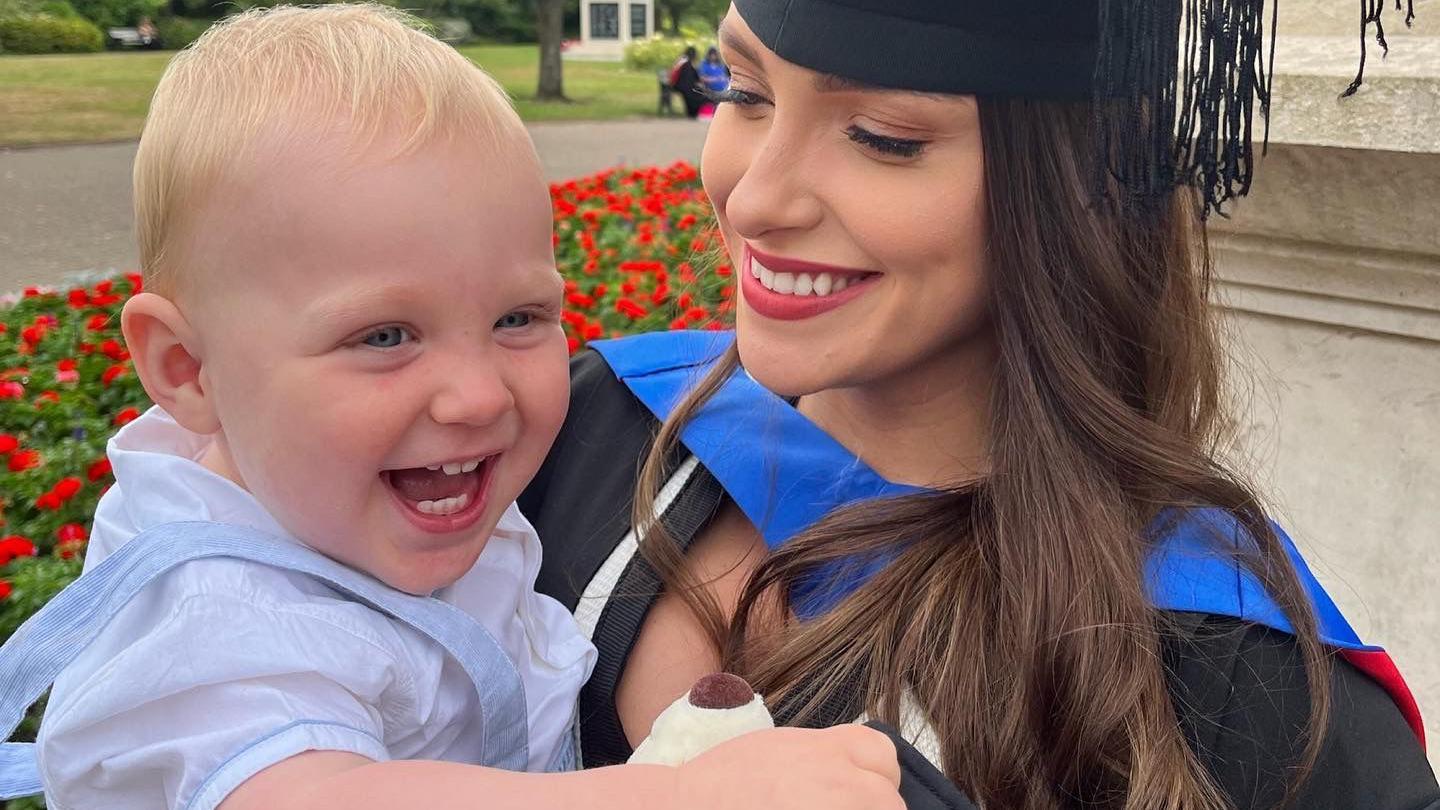
- Published21 January 2024
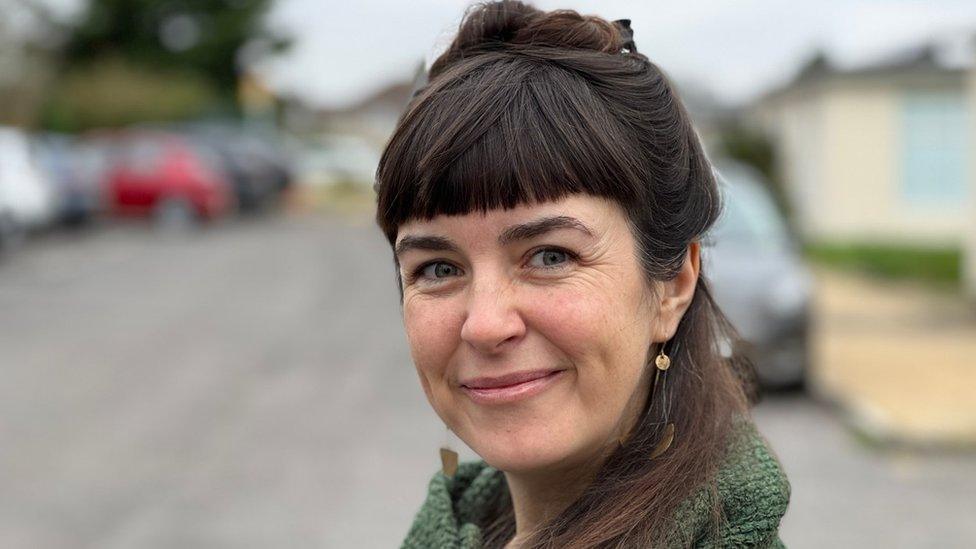
- Published10 April 2024
